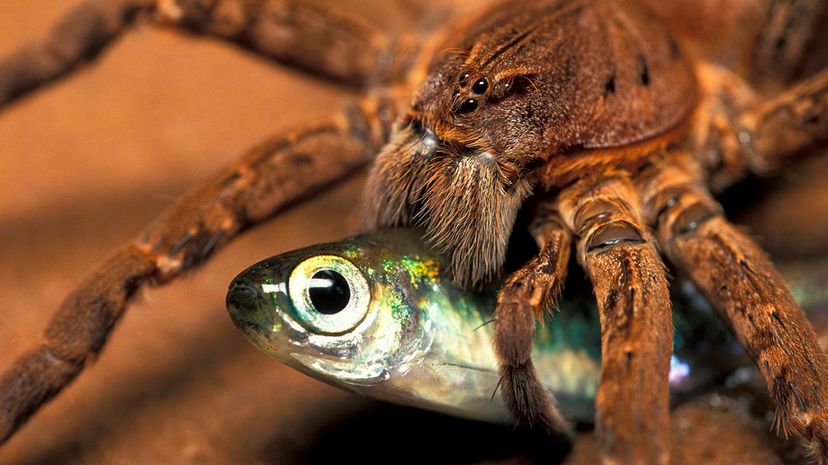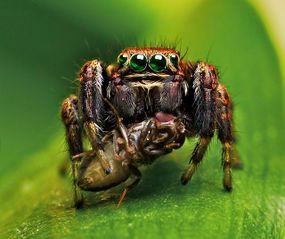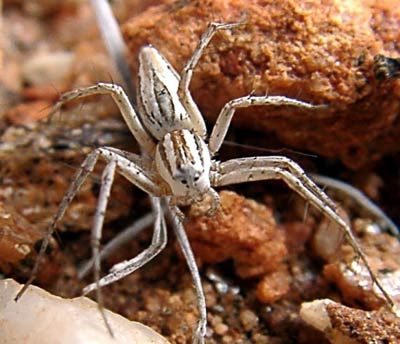
Key Takeaways
- Spiders consume 440 to 880 million tons (399 to 798 metric tonnes) of prey annually, more than the total meat consumption by humans, which is around 400 million tons (363 metric tonnes).
- The majority of spider predation occurs in forests and grasslands, with hunting spiders thriving better in undisturbed habitats.
- Spiders are also an important food source for many predators, parasitoids, parasites and bird species, highlighting their significant role in terrestrial food webs.
If you are afraid of spiders, this information is not going to help.
For one thing, sit with this a spell: Our planet is absolutely teeming with spiders. There are at least 45,000 different species on Earth, and if you put the entirety of the global spider population onto a scale, that biomass would weigh about 25 million tons (22.7 million metric tons). In some places they can live at densities of around 1,000 individuals per square mile (2.6 square kilometers). And a new study published in the journal The Science of Nature estimates that the world's spiders altogether consume between 440 and 880 million tons (400 and 800 million metric tons) of prey each year. That's right: Spiders eat more meat in a year than is consumed by the world's entire human population.
Advertisement
(Are you the one who's afraid of spiders, and you're still reading this? We did warn you.)

How much is 440 to 880 million tons, anyway? Well, put it this way: The Empire State Building weighs around 365,000 tons (330,000 metric tons). So spiders eat between 1,200 and 2,400 entire Empire State Buildings' worth of insect mass (and the odd plant, bat, fish or lizard) each year.
Still having a hard time putting this number into perspective?
"For a sense of just how much this is, take the following into account: All humans together consume an estimated 400 million tons of meat and fish annually," said co-authors Dr. Klaus Birkhofer of Lund University and Dr. Martin Nyffeler from the University of Basel, in a press release. "Whales feed on 280 to 500 million tons of seafood, while the world's total seabird population eats an estimated 70 million tons of fish and other seafood."
Individual spiders are nowhere near as big as any of those animals individually, but their sheer numbers make up for what they lack in size. It's historically been difficult to study the impact spiders have on the terrestrial ecosystems of the world precisely because they are so small, but also because they're nocturnal and mostly live hidden in vegetation.
Birkhofer and Nyffeler estimated the annual death toll racked up by spiders using two different types of calculation based on different models. They found that 95 percent of spider predation happens in forests and grassland habitats, and that hunting spiders performed much better in undisturbed habitats than in places like agricultural fields and cities.
And spiders don't just kill, they're an important source of food as well. Up to 10,000 species of predators, parasitoids and parasites feed exclusively on spiders, and they make up a big part in the diets of thousands of bird species.
"We hope that these estimates and their significant magnitude raise public awareness and increase the level of appreciation for the important global role of spiders in terrestrial food webs," Nyffeler said.
Want to even the balance between we two-legged creatures and our eight-legged neighbors? Perhaps try snacking like this woman:

Advertisement
